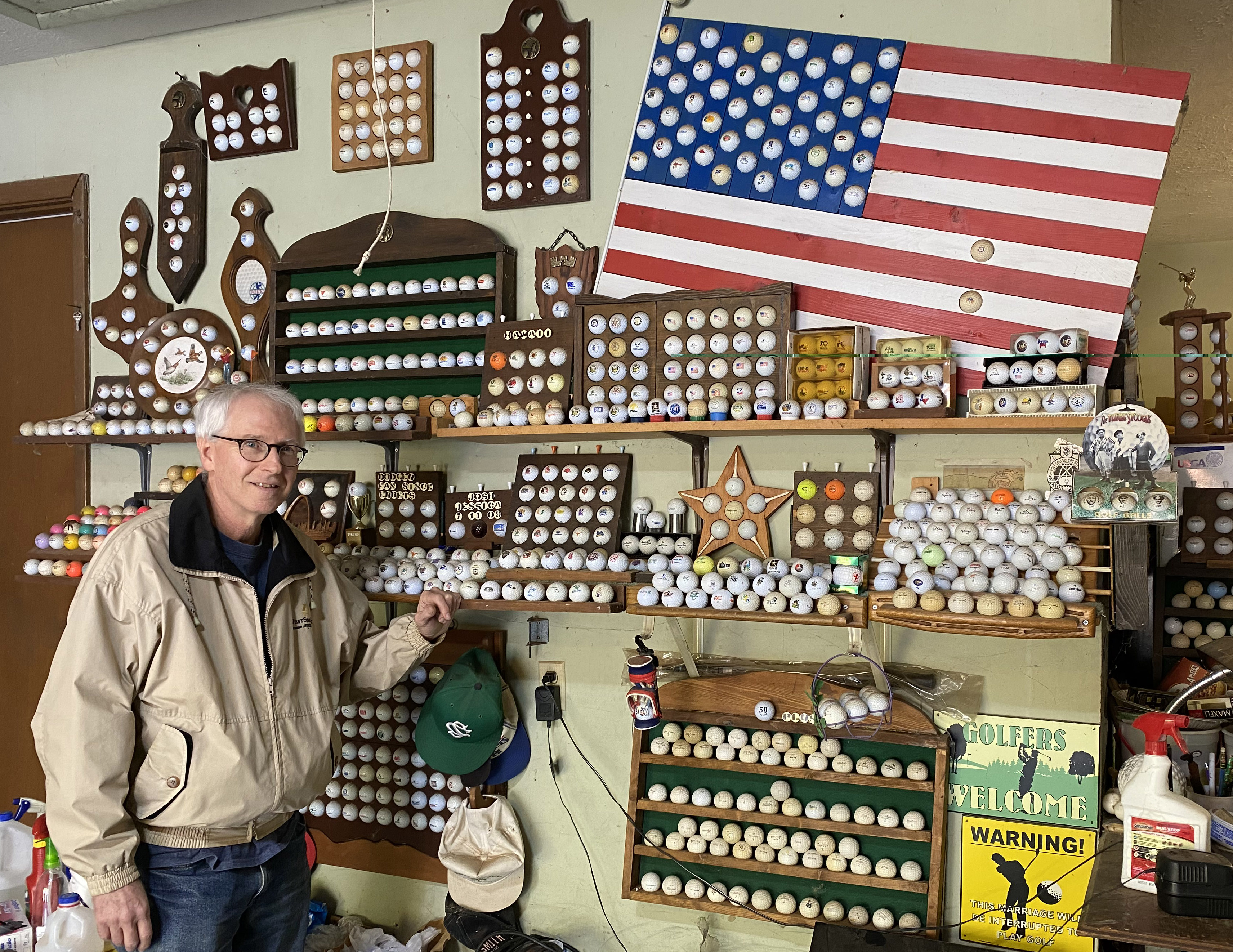Frank Urban collected many things in his 94 years — athletic accolades, skills as an electronic engineer, a hidden acreage in Springfield where he grew vegetables and fruit and raised cattle, the admiration of friends and colleagues and the love of his family.
And 5,000 golf balls.
Frank, who died Oct. 15 after a brief illness, seemed always busy, working to provide for his wife, Oma, and their five children. He kept Springfield radio station KGBX on the air for 29 years and later maintained recording tape manufacturing equipment for National Audio Company. He had side hustles, too — tilling gardens for others, for instance.
Yet he never was too busy to lavish attention and love on his wife, three daughters and two sons, and to have a bit of fun himself every now and then, too.
Born on a dusty western Kansas farm on the cusp of the Great Depression, Frank’s first years were occupied by chores with crops and livestock.
“We nearly starved to death when we lived out there with our grandpa,” recalls Frank’s brother Vernon, 92, who resides in Oklahoma City.
Frank learned early the rewards of initiative. There was a small golf course near the farm, and in his rare spare time he scoured the perimeter and roughs looking for lost golf balls that he could sell back to players.
”He was interested in getting some spending money for a Coke and a candy bar,” says his eldest son, Mark, who lives in Fort Smith, Arkansas.
More about golf balls later…
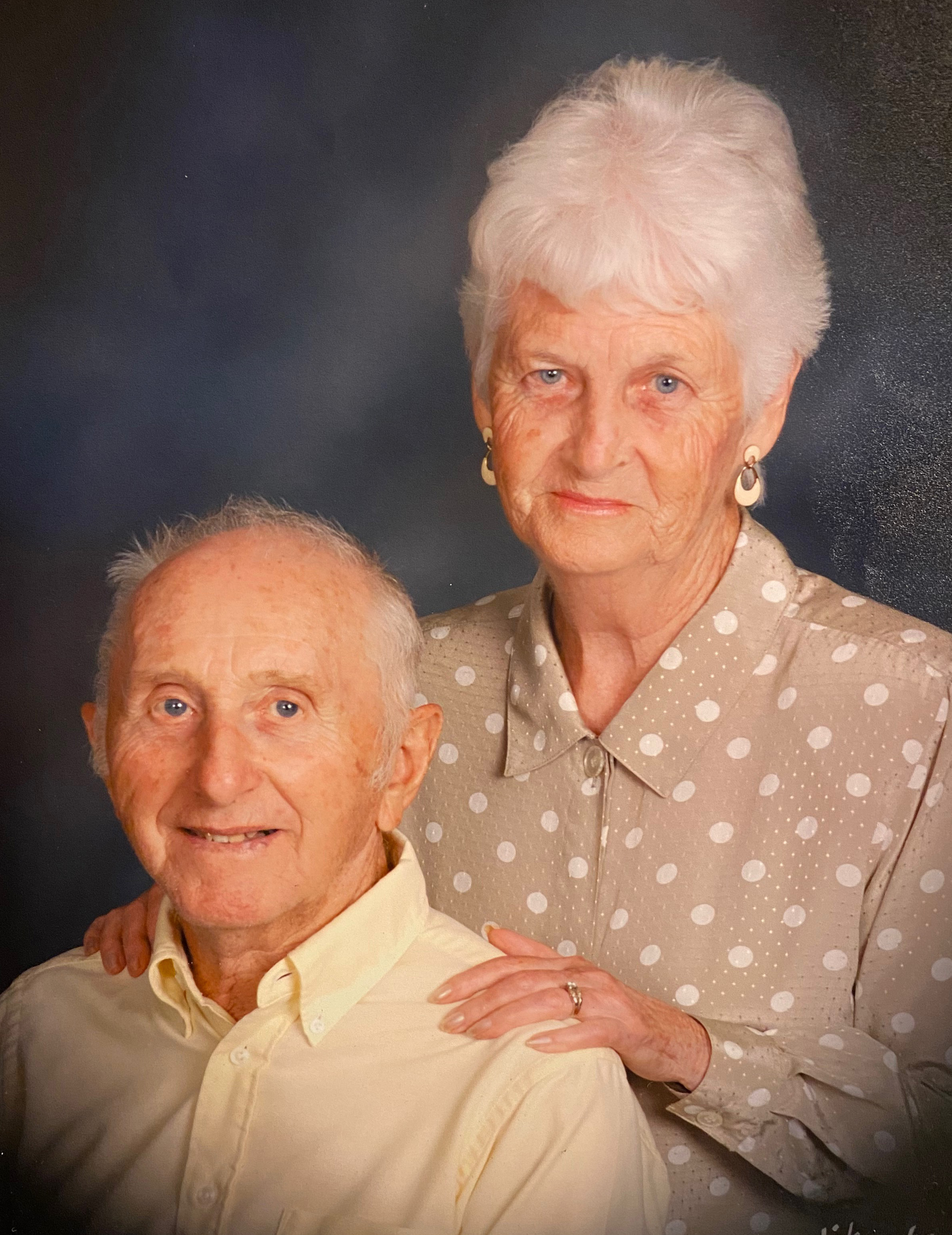
By the time Frank was entering high school, his father moved the family to a farm near Topeka, Kansas, where he’d landed a job in a meat-packing plant. Although he grew to only 5-foot-8 and was the shortest player on the team, Frank led the Washburn Rural High School basketball squad to glory. His teammates called him “Skeeter” because of his size and speed.
A newspaper story from the time noted that Frank was the fourth-highest scorer among all high school players in Shawnee County, Kansas, in his senior year.
“Yes,” says Vernon, “but it doesn’t tell that he missed two games because he had the mumps. And they only played 10 or 11 games a season back then. If he hadn’t been out sick those two games, no telling how many points he would’ve scored, and he could’ve been the top scorer of all.”
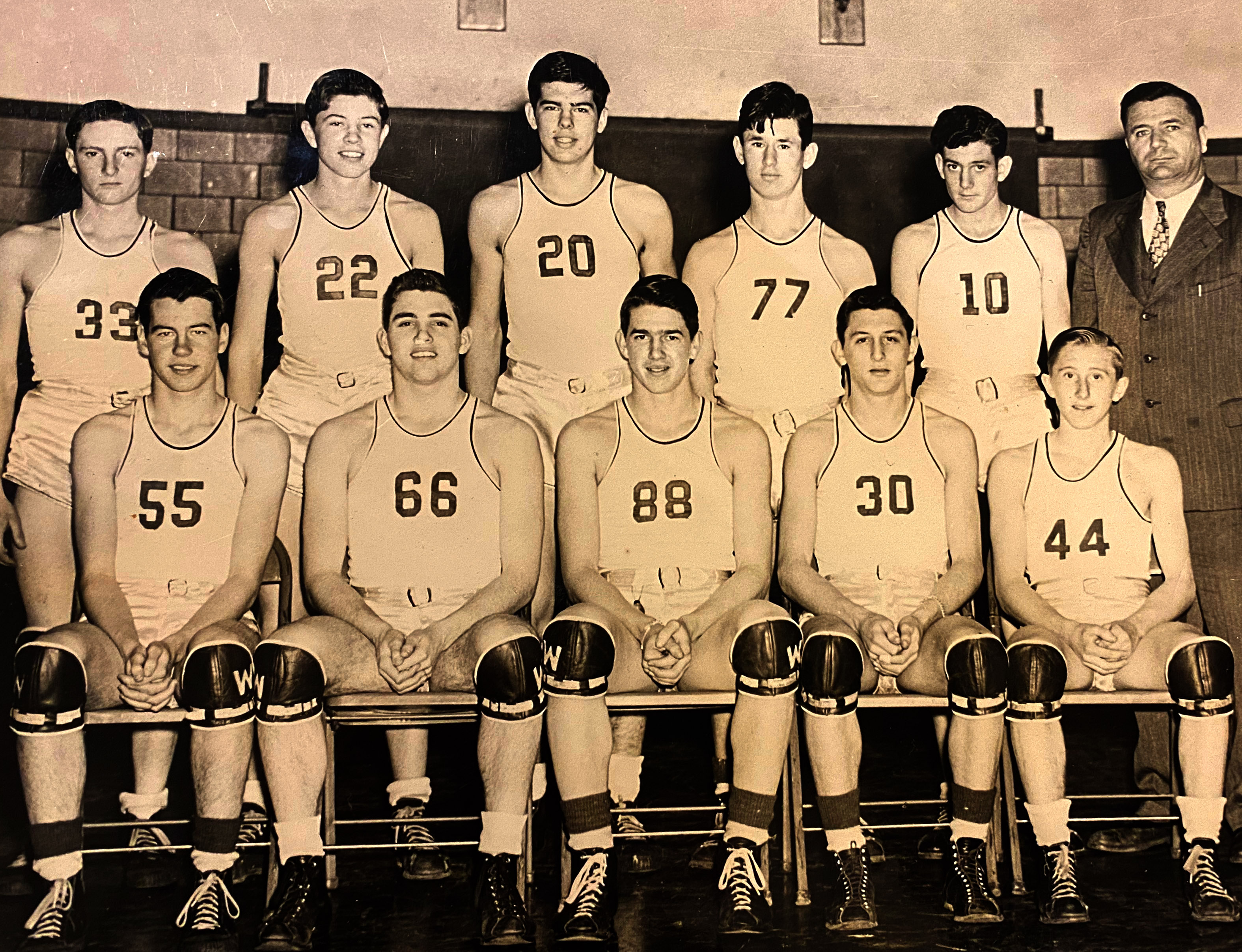
That same year, Frank was the star pitcher on an American Legion baseball team that won its league championship. His record on the mound was 13-1, with Vernon often serving as his catcher.
Frank earned an athletic scholarship to Washburn University in Topeka.
“He went to enroll one morning, and Dad and I were out shucking corn. About 10:30, here he comes out with his overalls on, and he just started shucking corn along with us. I said, ‘What are you doing here?’
“He said, ‘Well, they told me I had to take this and had to take that, and I had to do this and I had to do that.’ And I told them, ‘No I don’t.’ And they said, ‘Well, if you want to be here, yes you do.’ And I told them, ‘I walked in that front door, and I can walk right out the back door.’ He said he knew he was needed on the farm.”
Not long after, “Dad said he was done with farming, and he bought a grocery store and service station in Carthage at the intersection of Highway 71 and Alternate Route 66,” Vernon recounts.
Frank got a job as a marble cutter and polisher at a local quarry, but he also was lured back onto the baseball diamond, as a member of the Chanute Giants, a Class D farm club for the New York (now San Francisco) Giants major league team in Chanute, Kansas. He was on the roster in 1947 and ‘49, playing in the Kansas-Oklahoma-Missouri League.
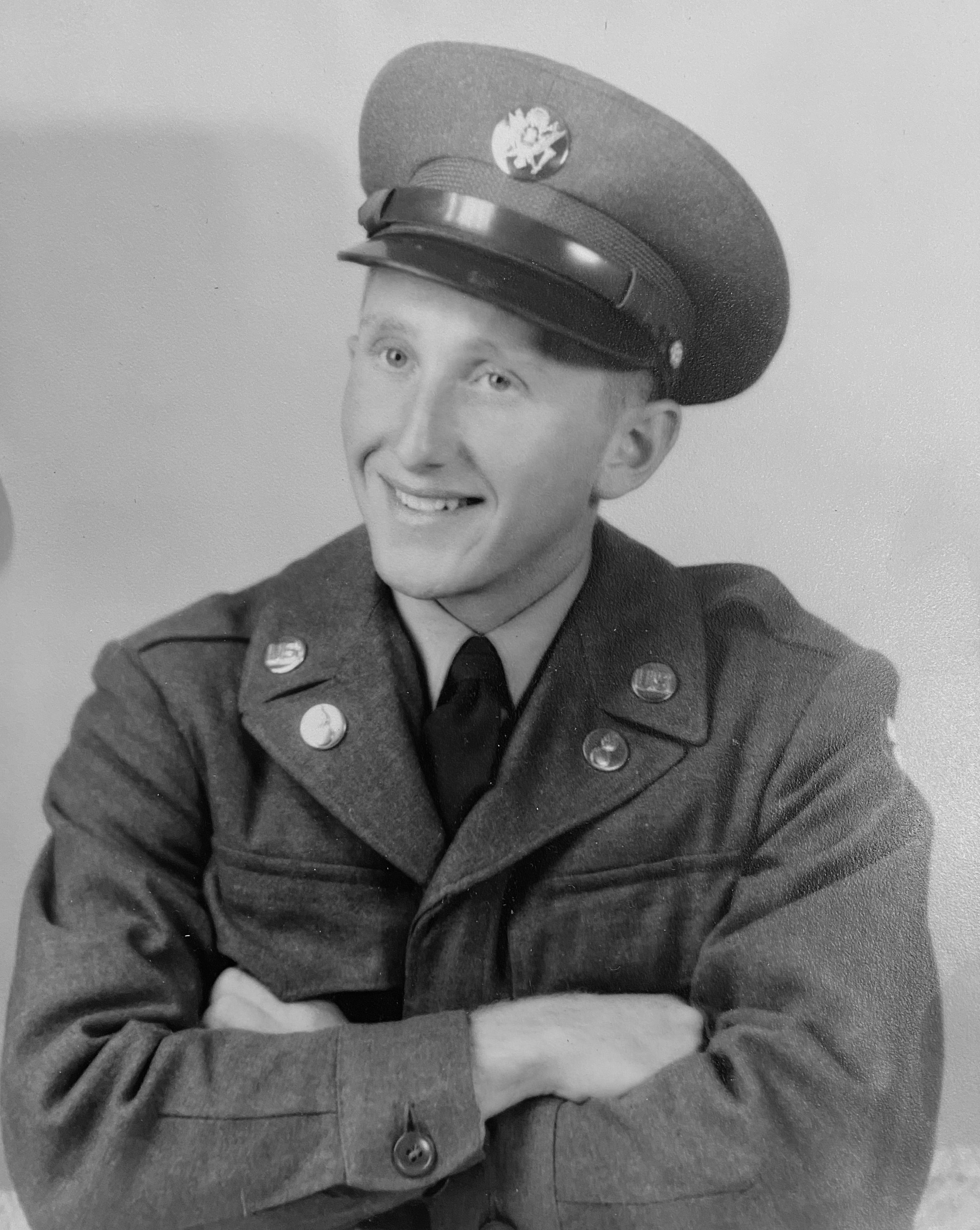
Then Frank got drafted into the Army. Trained as an ordinance specialist, he spent most of his two-year active duty hitch in France rather than in the Korean war zone. When he returned to the States, he decided to hang up his baseball glove and enrolled in an electronics school in Kansas City.
After graduation and passing a tough Federal Communications Commission license exam to qualify as a radio station engineer, Frank was hired at KGBX in Springfield, where he stayed for the next three decades.
Monte Chaney, who held a similar post at KWTO across town, says Frank was “a very competent technician. He knew how to handle the talent, and how to keep a balance between what they wanted to do and what you actually could do with black magic and Radio Shack parts.”
At KGBX, Frank met a young woman, Oma Gilette, and eventually proposed marriage. They were wed for 65 years. She died in 2020.
They set up their home in a two-bedroom bungalow on the south side of what now is the 800 block of Republic Road west of Campbell Avenue. Back then it was rural, called Highway M. The small house came with a large, narrow lot that measures 3.5 acres, stretching southward to today’s James River Freeway.
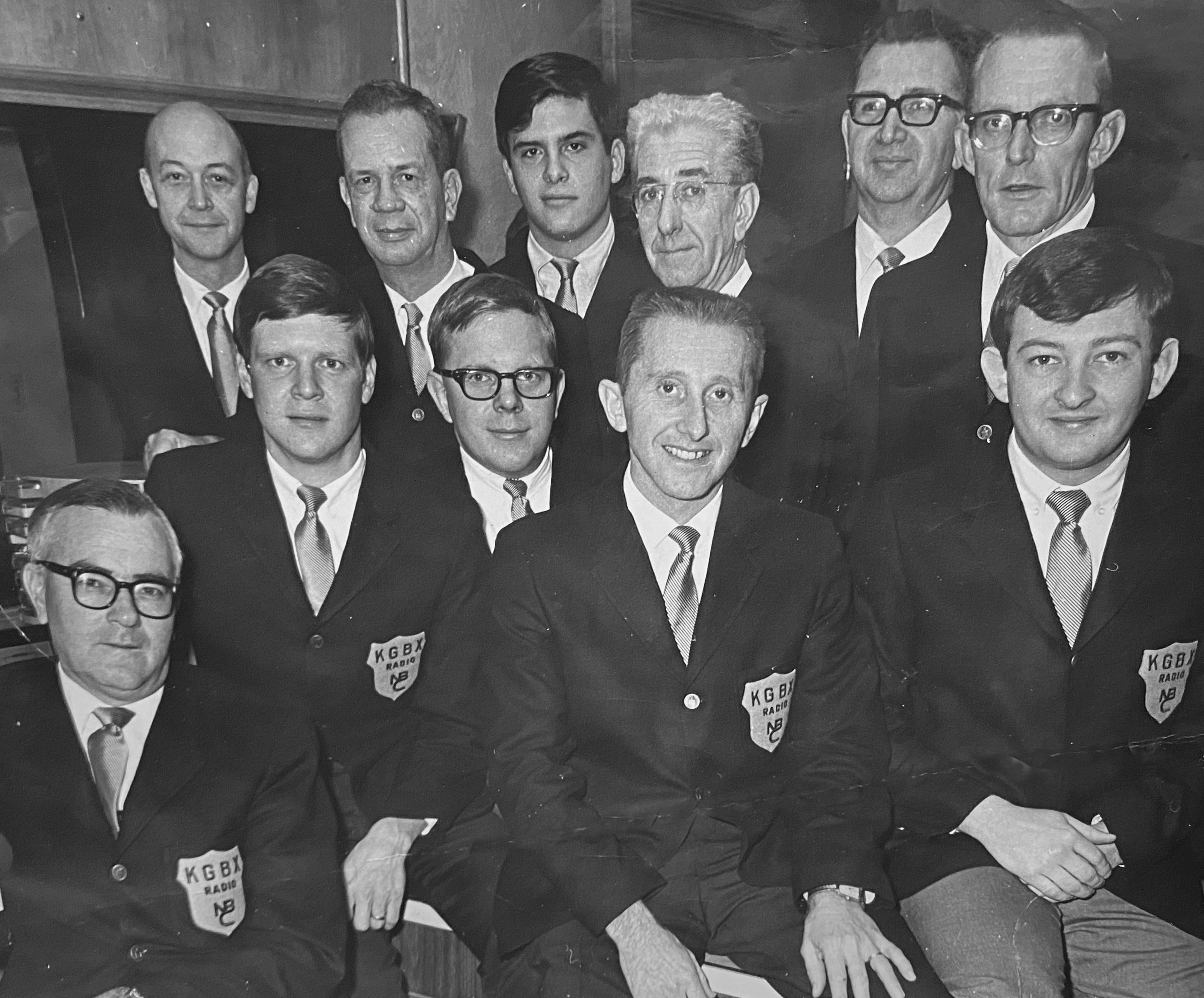
In the ensuing years, the city of Springfield surrounded the property. It is flanked nowadays by a church and a veterinary hospital. But the tract provided needed food for the growing family, and Frank kept it even after building a larger home as the Parkcrest residential subdivision took shape in the 1960s.
“We’d had seven people in that little house,” recalls Frank’s eldest daughter, Cindy Taft, who lives in Iowa. “Our parents had the little back bedroom, my two brothers had the other little bedroom, and me and my sisters slept on a hide-a-bed in the living room.”
Even after the move, Frank and the kids continued to farm in their former backyard. In fact, Frank kept at it right up until a few weeks ago.
Crops included tomatoes, okra, onions, cucumbers, squash, peppers and asparagus. There was a strawberry patch, pumpkins and gourds, peach trees, cherry trees, and an apple tree.
“He gave up on corn because the squirrels gave him fits,” Cindy says.
Mark adds, ”And Dad always raised a couple of steers each year in the pasture back there. He’d fatten them up, then butcher one so we’d have meat and sell the other.”
Oma canned and froze the produce, which provided a significant portion of the family’s menus year-round.
“They sent all of us through Catholic education at St. Agnes, and never asked for assistance,” Mark says. “Mom was a homemaker, so they did it on one salary — and you didn’t make a ton of money as a radio engineer.”
Daughter Julie Brown, who lives in Battlefield, says, “Dad always strived to have ‘enough’ for his family. He worked part-time jobs in addition to his full-time job to make sure we never went without.”
“He’d pick us up from school sometimes and say, ‘I’ve got one more garden to plow,’” Cindy says. “So off we’d go with him, and he’d get out and plow the person’s garden. How many miles he walked behind that (Gravely rotary tiller) — you’ve got to wonder.”
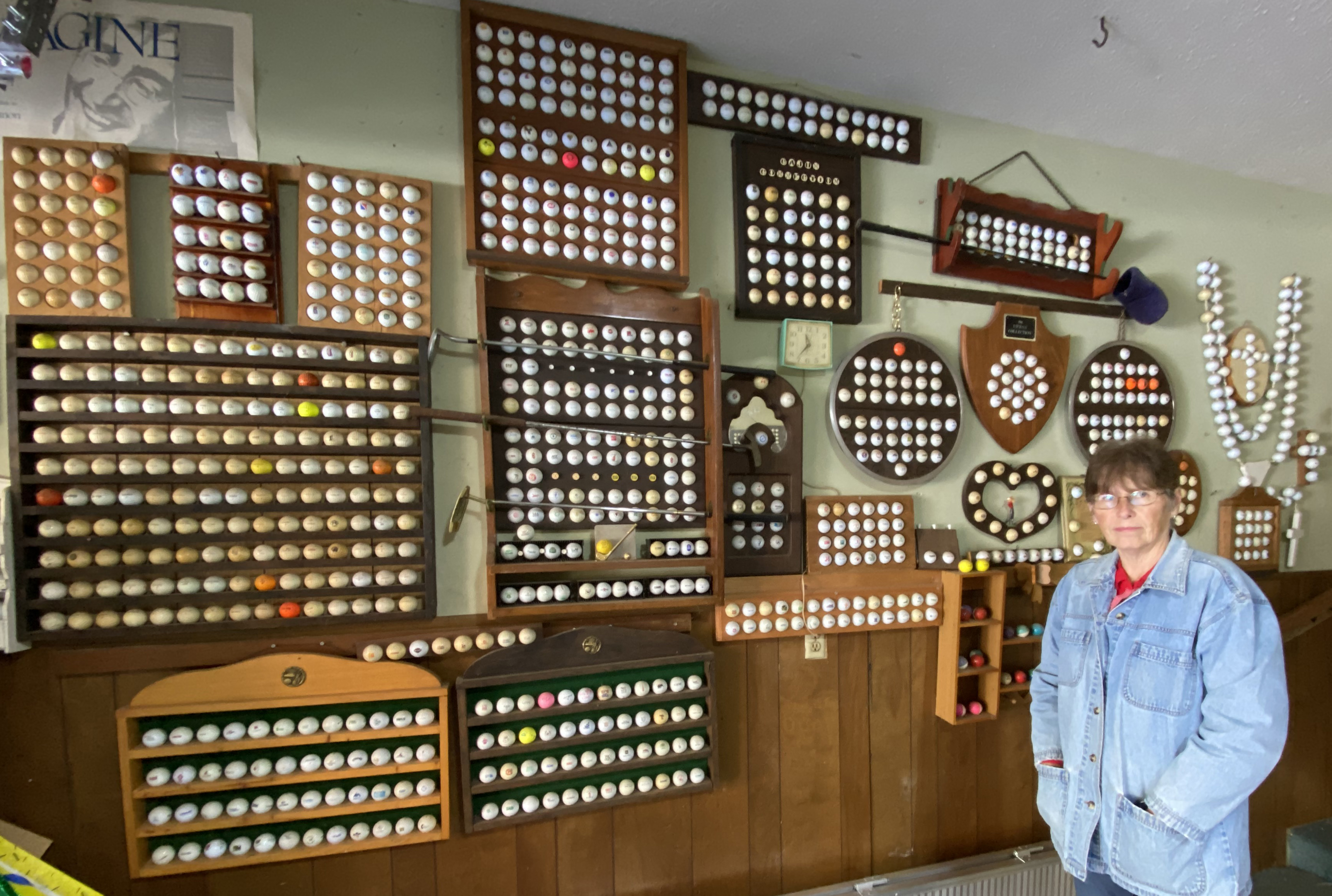
Mark’s younger brother, Steve, who lives in Rogersville, also marvels at his parents’ work ethic.
“When I think of my mom and dad, I think of the word ‘sacrifice,’” Steve says. “My dad was a hard-working man who plowed gardens for others after work and took every radio station remote assignment to earn extra money for the family.
“Mom and Dad never owned a credit card. They would save up for that new TV or stereo or dress, and not purchase until they had the money – an old concept that’s long gone.
“Dad was always proud of being the engineer for the SMS Bears basketball and football games in the 1970s and ‘80s, working with the likes of (play-by-play announcers) Vern Hawkins and Art Hains. But even though he was always busy, he always found time for us kids. He coached my baseball and basketball teams in my youth,” Steve added.
Frank also found time to lavish attention on Oma. His daughter Laurie Cook Keith, who lives in Lebanon, says, “One of the things that I remember about my dad the most is how he showed his affection, his heartfelt feelings, through poems. He wrote poems about all kinds of things, and wrote several to my mom. Many were centered around holidays and family. These I will cherish the rest of my life, and he will live on through them.”
Somehow, amid all the hustle and bustle, Frank found time for relaxation and fun. He took his sons fishing at Lake Springfield and the James River. He organized and led a slow-pitch softball team for several summer seasons.
“Frank had a team that was made up of guys from all over town — some from church, some he’d worked with at the radio station, just a bunch of guys who had nothing in common except liking slow-pitch softball and knowing Frank,” says Steve Stepp, who hired Frank to work at his National Audio Company after Frank left KGBX. “It was just a fun thing.”
Stepp says Frank was a good softball player, but he even more appreciated Frank’s engineering talents with the sophisticated electronic gear used in National Audio’s production of cassette recording tapes.
“If we had a piece of equipment that Frank didn’t already know about, he’d educate himself and become an expert pretty quickly. He was a jack-of-all-trades,” Stepp said.
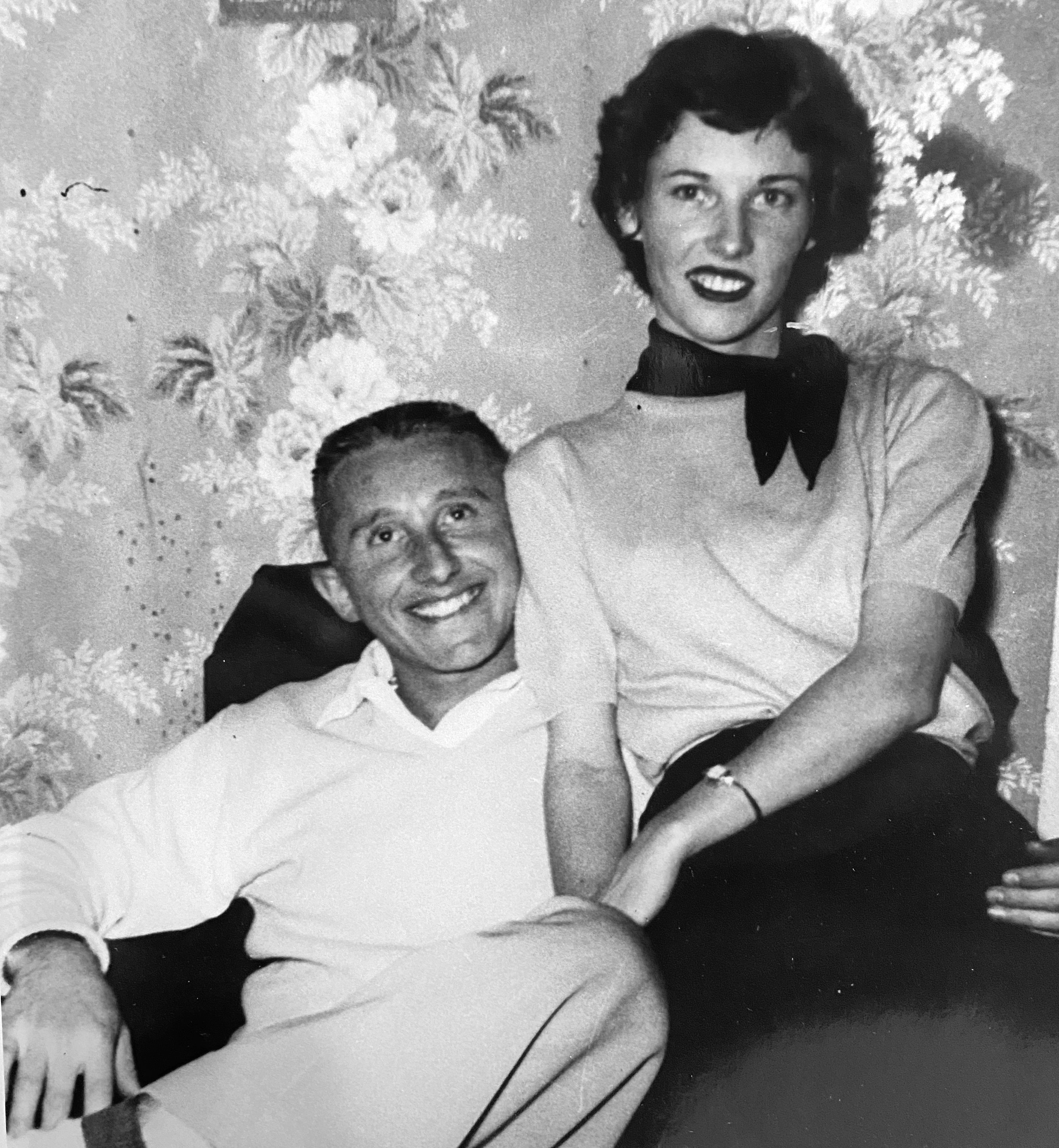
Then there are those 5,000 golf balls.
Frank became a “pretty good golfer,” his kids say. And he continued his hobby of collecting stray golf balls.
“I went with him countless times to go hunt golf balls,” says Mark. “Remember Siler’s Shady Acres? It’s got houses built on it now, but we used to hunt a lot out there. And at Horton Smith. We would go to Rivercut and hunt that one, too.”
Frank would provide serviceable golf balls to players who needed them. But he kept the ones marked with distinctive logos for his collection.
The walls of his garage are lined with clever, creative displays of the balls he deemed worthy of his keeping. The logos advertise businesses, products, colleges, athletic teams, etc. Frank was a longtime fan of the Booklyn, then Los Angeles Dodgers Major League Baseball team. The kids plan to slip one of the several golf balls in his collection that bears the Dodgers logo into their dad’s casket.
The five siblings are taking their time in deciding the ultimate disposition of the collection. They may want to keep small samples as mementos, and they are researching other possible appropriate recipients for the extraordinary displays.
Frank’s brother Vernon couldn’t make the trip from Oklahoma to attend the funeral service at St. Elizabeth Ann Seaton Catholic Church and the burial at the Springfield Veterans Cemetery, but he is grateful for the telephone conversations he had with Frank shortly before he died.
“We spent a lot of good hours together,” Vernon recalls. “To be honest, his influence over me was really important. I was kind of an impulsive kid, the kind of kid who might try to do most anything. And every once in a while, Frank would say, ‘We’re not doing that.’ I needed that.
“He was my idol. He didn’t know he was my idol – I didn’t fully realize it myself until later on. But he was. And I miss him.”
